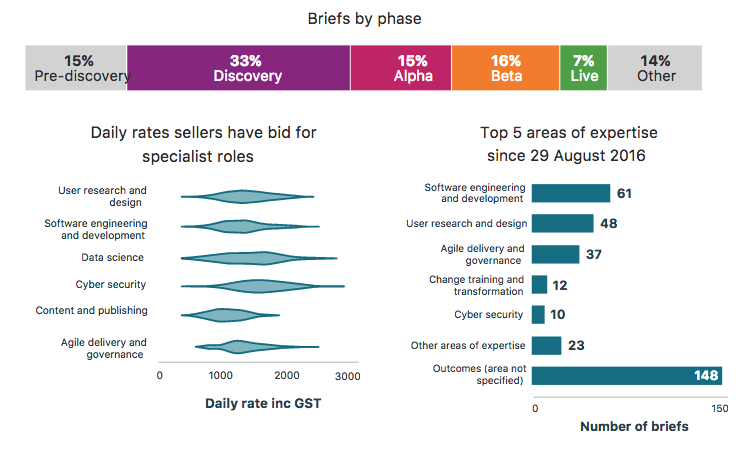Australian small and medium sized businesses (SMBs) were awarded more than 75 percent of the Federal Government’s $50 million in technology contracts since the launch of its Digital Marketplace in August 2016.
Assistant Minister for Digital Transformation Angus Taylor said 487 SMEs are currently registered as sellers on the government’s Digital Marketplace.
It comes after the government in August this year launched reforms to cap the amount for which big businesses can sell their IT services to the government on contracts, opening up opportunities for startups and SMBs to take a stake in large-scale government projects,
Under the reforms, government ICT contracts are capped at a maximum value of $100 million, or three years duration on a single project.
“More than 100 small and medium-sized businesses have shared in 75 percent of the Marketplace’s contracts. By comparison, SMEs picked up 30 percent on Austender in 2015–16,” Taylor said.
“This is a real achievement and shows we’re breaking down some of the barriers for small businesses who want to win digital work with government.”
According to Taylor, more than 350 opportunities have been posted on the Marketplace, with the government now targeting an additional 10 percent of its $6 billion annual ICT spend toward SMEs.
In looking at how the Marketplace breaks down procurement, 15 percent of briefs have been in the pre-discovery phase, 33 percent in discovery, 15 percent in alpha phase, 16 percent in beta, and 7 percent live.

Source: Digital Marketplace
The top five areas of expertise as required through briefs are software engineering and development, user research and design, agile delivery and governance, change training and transformation, and cyber security.
The launch of the Digital Marketplace was first announced by former Minister for Innovation, Chris Pyne in March 2016.
Pyne said at the time, “We’re keen to open this up to smaller and newly-established businesses who have traditionally found it too big a burden to prove their credentials to government. There have been too many hoops to jump through, so they simply haven’t bothered to apply for government ICT work. That’s a lost opportunity, because we know lots of businesses are on the cutting edge of digital innovation and can provide exciting solutions for governments to deliver better services at a lower cost.”
The government has this week launched a Small Business Digital Taskforce, to be headed up by Mark Bouris, to “ensure that more Australian small businesses can thrive in an increasingly digital economy”.
Among the others joining the taskforce are Assistant Minister for Industry, Innovation and Science Craig Laundy, Spiro Pappas, executive general manager of Global Institutional Banking at NAB, and Su McCluskey, chairperson of Energy Renaissance.
Image: Angus Taylor.




















Trending
Daily startup news and insights, delivered to your inbox.